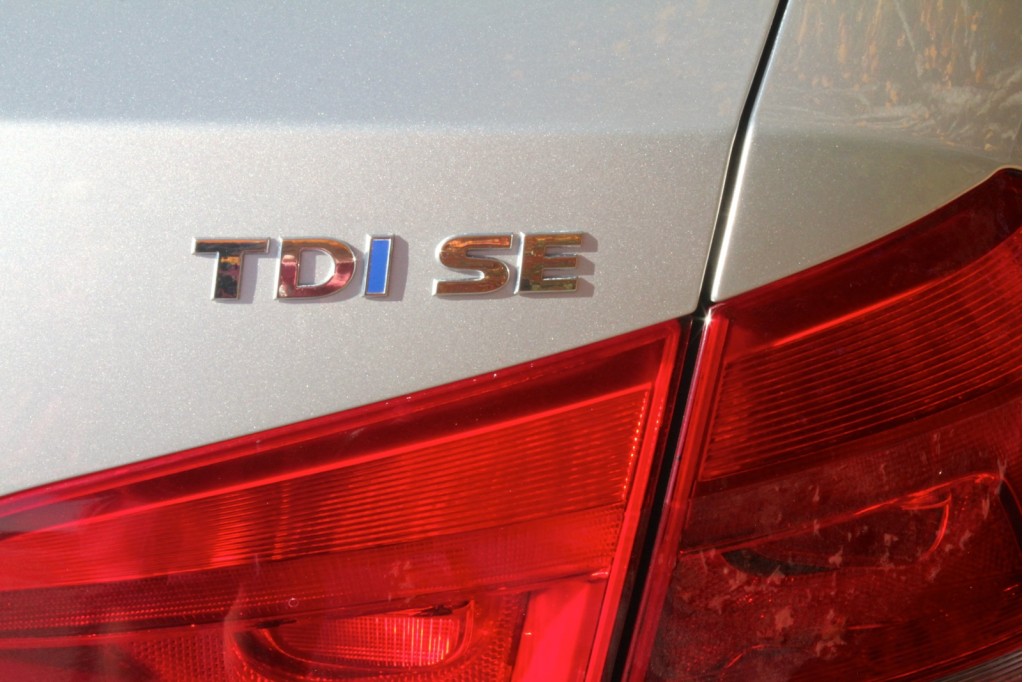With luck, owners of the 466,000 Volkswagen and Audi 2.0-liter diesel cars at the center of the VW emission cheating scandal now know that they will be offered a choice of what to do with their cars.
Either they will be able to sell their cars back to the company for a set price, or they can have their cars updated to comply with emission rules (or get closer to them) if and when such modifications are approved by regulators.
But information on what those modifications would be, and when they might come, has been hard to come by.
DON'T MISS: VW's long road ahead to restore consumer trust, faith in green credentials
Now, we've learned a little bit more than we knew before about the timing and scope of the modifications.
And the details came buried deep in an article from last week discussing the impact of the VW diesel cheating scandal on its beleaguered U.S. dealers.
According to The Wall Street Journal, the modifications would entail the following:

2015 Volkswagen Golf TDI SE
A software fix would be available for third-generation diesels in October, followed by a “software/hardware modification” for first-generation diesels in January, and a software update for second-generation diesel vehicles in February.
In October 2017, Volkswagen expects to have a hardware fix ready for third-generation diesel vehicles.
ALSO SEE: VW diesel deal: what should I do? Take buyback? Wait for updates?
Owners can take a couple of things away from this description. First, the full schedule of software and hardware repairs will take more than a year to roll out, assuming each is approved.
Second, different modifications will be needed for different engines, and some of the cars will require two different updates: first software, then hardware later on.

2012 Volkswagen Passat TDI Six-Month Road Test
It's not at all surprising that the "first-generation" cars—those without a selective catalytic reduction system, also known as urea injection—will require a "software/hardware modification," though experts still don't expect them to be retrofitted with such a system.
Perhaps more unusual is that the third-generation cars, with the newest EA288 engine and SCR fitted, will ultimately require a hardware modification as well.
Nonetheless, owners willing to wait for the modifications to become available should probably wait to learn how the modifications will affect the cars' performance and fuel economy before deciding whether to update them or sell them back.
CHECK OUT: What will I get for my VW diesel car in the buyback?
Owners will have roughly two years during which they can opt for the buyback.
The specific breakdown of the cars, engines, and generations is as follows:
- Generation 1: Approximately 325,000 vehicles
- VW Jetta TDI (Model Years 2009 – 2014)
- VW Jetta SportWagen TDI (Model Years 2009-2014)
- VW Golf TDI (Model Years 2010-2014)
- VW Beetle TDI and VW Beetle Convertible TDI (Model Years 2012 – 2014)
- Generation 2: Approximately 90,000 vehicles
- VW Passat TDI (Model Years 2012-2014)
- Generation 3: Approximately 67,000 vehicles
- VW Jetta TDI (Model Year 2015)
- VW Golf TDI (Model Year 2015)
- VW Golf SportWagen TDI (Model Year 2015)
- VW Beetle TDI and VW Beetle Convertible TDI (Model Year 2015)
- VW Passat TDI (Model Year 2015)
_______________________________________












